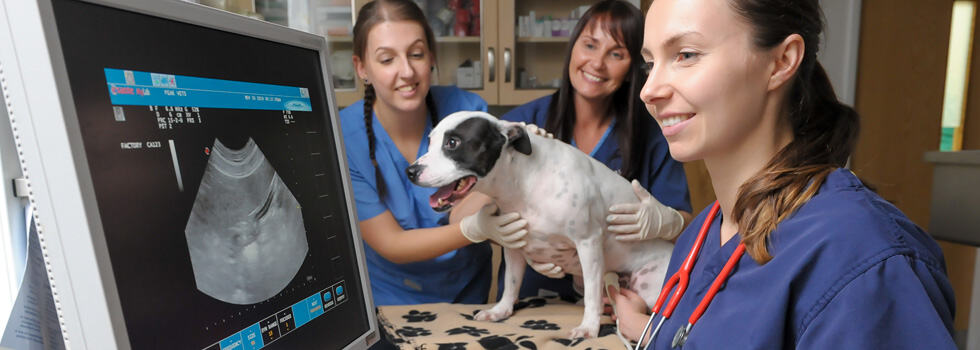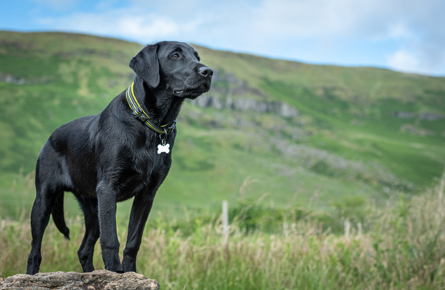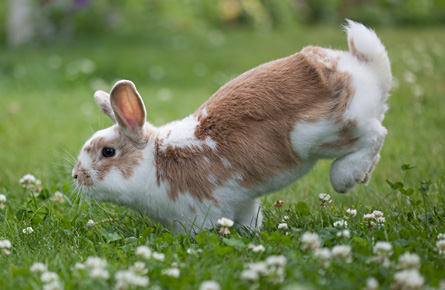A pet microchipping implant is implanted under your pet's skin to create a permanent identification procedure. It's about the size of a rice grain and is used for permanent identification.
Sheffield Pet Microchipping
The majority of veterinary professionals, including Peak Veterinary Clinics, as well as local government agencies and rescue organisations, are equipped with portable scanners that can read each pet's unique microchip number.
This ensures that your contact details are always available in the central microchipping database. Once your pet has had their microchip scanned and identified, a quick phone call can help you and your pet reunite.
Book a microchipping appointment
the Importance of Pet Microchipping in Sheffield
The staff at Peak Veterinary Clinic strongly suggests pet microchipping in Sheffield for dogs, cats, ferrets, rabbits, snakes, parrots, tortoises, and horses.
Legal Requirement
Legally speaking, all dogs must now be microchipped, and before ownership is passed from the breeder, all puppies must have had their vaccinations by the age of eight weeks. If you do not get your dog microchipped, you risk a fine of up to £500.00.
It's also important to remember that your pet has to be microchipped and have a pet passport if you intend to travel with them.
When pet microchipping in Sheffield, sedation is not required for the microchip insertion operation because it is a minimally uncomfortable technique that may be completed during a normal visit.
Furthermore, don't panic if you can't remember or know if your pet is microchipped; utilising a scanner to check for a microchip is a fairly simple process. We can make arrangements for a Peak Vets staff member to scan your pet and look for a functional chip. Please be certain that before implanting a new microchip, we all make sure the animal hasn't already received one.
Equestrian Microchipping
Beginning on Monday, October 18, 2018, Defra's new equine identity requirements mandate that all horses, ponies, and donkeys be microchipped and have a valid UK passport. The information will be kept in the Central Equine Database.
It is already mandatory for all horses born after June 30, 2009, to have microchips. Before October 1, 2018, owners of horses born before that date will have two years to get their horses microchipped. After that, on October 1, 2020, all owners will be required to microchip their horses, ponies, and donkeys.
All local and police agencies may locate the owners of lost or stolen horses thanks to the Central Equine Database, which should facilitate the process of owners being reunited with their horses. Additionally, it may assist with discarded ponies, donkeys, and horses, making sure that the right penalty is administered and that the owners are held responsible. It is a workable method that guarantees the donkey, horse, or pony receives the proper care in response to urgent animal welfare concerns.
The organisation that issues passports must be informed of any changes to a horse's ownership or status, such as when they are put down, lost, stolen, or signed out of the food chain. After then, the organisation will have a full day to update the CED.
Pet Microchipping for Horses
A veterinary surgeon at Peak Vets in Sheffield will make sure that your horse does not already have a pet microchip before performing the procedure. The veterinarian will make sure the chip is functional and reads the right microchip number before putting it in.
Six self-adhesive bar code stickers are included with the microchip, which may be used to affix the sticker to a passport application or other necessary documentation. The horse owner and veterinarian should also save the bar code or microchip number for future use.
The mid-crest, on the left side of the neck, is where the pet microchipping is inserted. In addition to cleaning the region and extracting the hair patch, a local anaesthetic injection could be performed. After inserting the microchip with a wide-bore needle, it is scanned to make sure it is placed correctly. Rarely, edoema may appear at the site of insertion, and in certain cases, bleeding may start from the injection site. Antibiotics and the drainage of any fluid that forms are the usual methods of treating this.
Registration Form
You will be requested to fill out a registration form at the time of implant, and a team member will use that information to submit your information to a national database. The cost of implantation includes the storage of your pet's information in the database for the duration of their life.
Any changes to your contact information should be updated as soon as possible. Since all of Peak Vets' microchips meet International Standard (ISO) requirements, they may be used in the Pet Passport programme and be identified by scanners overseas.
Please contact one of our helpful staff members for further details on pet microchipping in Sheffield right now!










